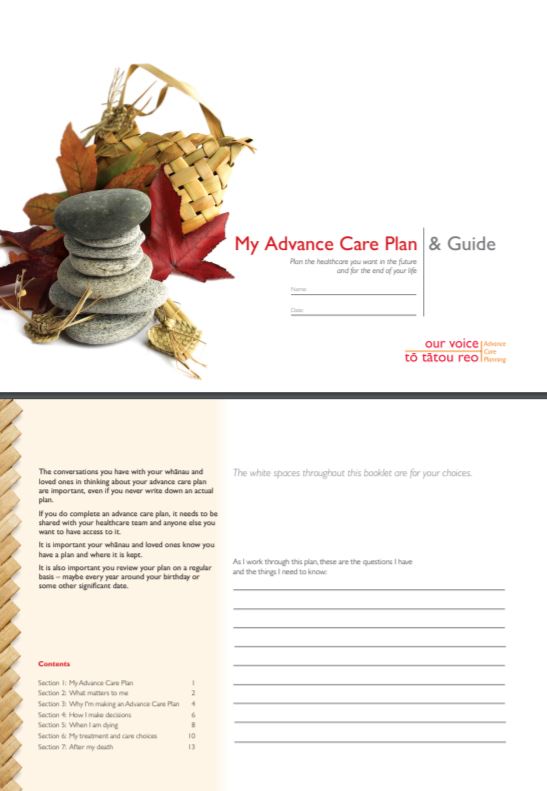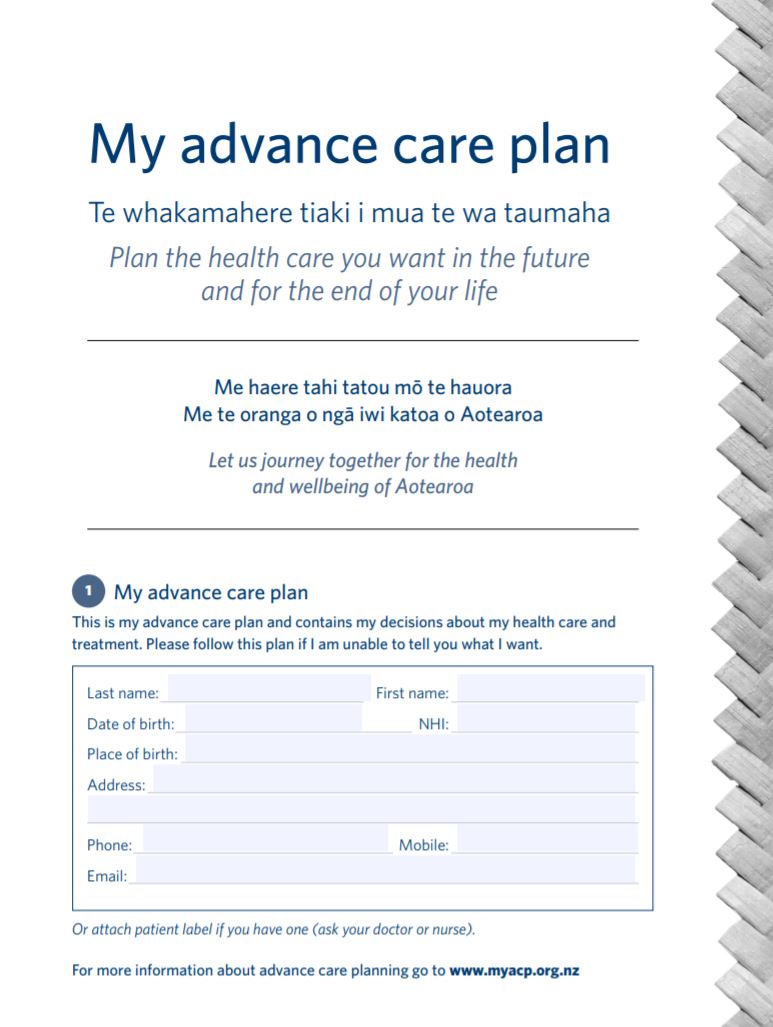- Thinking, talking, planning, sharing and reviewing what matters to you, can better prepare you, your whānau and health care team for what the future might hold.
- Talking to your whānau and health care team ahead of time is especially helpful if you can no longer speak for yourself, eg, in an advanced stage of dementia or when something unexpected happens.
- Some people also find it helpful to put together ideas in advance to better participate in the decision making.
- You may write down your thoughts in an advance care plan, which is a written record that includes your preferences for your future health care.
- Advance care planning can be done when you are perfectly healthy and want to prepare for the worst-case scenario or because you have a long-term condition or life-threatening illness.
- The 5 steps involved in advance care planning include thinking about, talking about, planning for, sharing and reviewing.
Advance care planning is a voluntary process, the pace and content of the conversations is determined by you. Your healthcare team will make sure you have enough information in a way you can understand it, so that you can more effectively take part in medical decision-making processes now and in the future.
Video: Jane Lai talks advance care planning
Social worker Jane Lai explains the value of advance care planning to the Chinese community. Produced in collaboration with Mercy Hospice, POI Project and the Health Quality & Safety Commission.
This video is in Mandarin but has English subtitles. Click the subtitles/closed captions box to turn them on.









